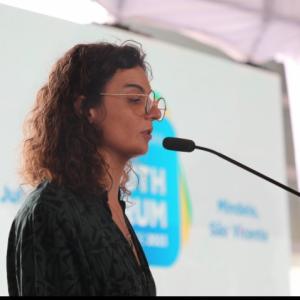The event aimed to ensure that the Government and the UN had shared understanding of the strategic priorities of the new Cooperation Framework and would co-own and co-lead its implementation. It provided an important platform for dialogue and alignment between the Government and the UN to pursue shared objectives of transforming lives and achieving sustainable national development.
The UN Development Cooperation Framework represents the collective offer of the United Nations to support the Kingdom of Eswatini in its achievement of the Sustainable Development Goals. The current Framework ends on 31 December 2025, hence the development of a new one for 2026-2030.
In his keynote address, Prime Minister, Russell Dlamini emphasized that the development challenges facing the country were undeniable including those relating to unemployment, poverty and inequalities, education, climate and national cohesion, all of which needed to be addressed as part of the vision of national transformation. “The Government of Eswatini envisions a new strategy for an era characterized by inclusivity, resilience, and prosperity. Guided by His Majesty’s visionary call for “Nkwe!”—a bold and agile approach to national development—we aim to build a nation where every LiSwati can thrive.’
Mr. Dlamini, further emphasized the importance of designing the new Cooperation Framework with clarity, resolve, and an unwavering focus on delivering tangible outcomes for the people of Eswatini, highlighting the imperative of aligning the United Nations’ work with the country’s national priorities and delivering as one United Nations. The Prime Minister went on to outline areas where the UN could support including transforming the public service to facility economic transformation, accountability and service deliver; strengthening governance; education; health; job creation; and food sovereignty.
Dr. Thambo Gina, the Minister of Economic Planning and Development and the co-convenor of the meeting, underlined that “the Government of the Kingdom of Eswatini shares the universal principle of putting inclusiveness at the core of effective partnerships for development. The aim is to bring together the perspectives and contributions of all stakeholders: government, development partners, civil society and business.”
The UN Resident Coordinator, Mr. George Wachira, underscored that the “dialogue offers a crucial opportunity to build a common understanding of the UN’s role in Eswatini and, more specifically, to co-create with Government the content of the UN’s contributions in the final five years of Agenda 2030. At the same time, the dialogue provides a base for cementing mutual accountability for the achievement of an agreed programme of action.”
Guided by the external evaluation of the current CF and the Common Country Analysis, this high-level dialogue offered the ideal platform to remind that the United Nations remains a trusted partner in an ever-evolving geopolitical context.
“While the times have changed and the context continues to evolve, the ideals for which the UN was established – global solidarity, cooperation, human rights and dignity, peace and security – are timeless and will remain relevant”, said Mr. Wachira. “As a UN Country Team in Eswatini, we represent those ideals. Our diversity as a family may at times appear to stand in the way of efficiency, effectiveness and coherence, and we are alive to that; it also represents the mosaic of expertise, resources, and experience to tackle complex global problems.”
It is expected that the new Cooperation Framework will be ready by June and signed by November for implementation to commence on 1 January 2026.



